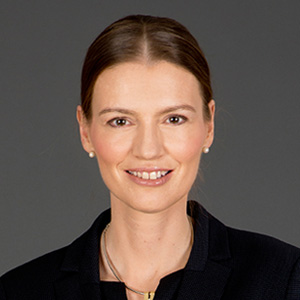
Croatia
Is the use of telehealth permitted?
Yes. Telehealth, in particular telemedicine ("Telemedicine"), defined as the provision of healthcare services at a distance (i.e., when a healthcare worker and a patient or two healthcare workers are not in the same location) by using information and communication technologies, pursuant to Article 38 (1) of the Croatian Healthcare Act (Zakon o zdravstvenoj zaštiti – "Healthcare Act") and Article 2 (1) no 1 of the Croatian Ordinance on conditions, organisation and manner of performing telemedicine (Pravilnik o uvjetima, organizaciji i načinu obavljanja telemedicine – "TelemedicineOrdinance") in conjunction with Article 257 (1) no 22 of the Healthcare Act, is explicitly recognised and permitted in various aspects throughout the Healthcare Act as well as the Telemedicine Ordinance. Additionally, the Healthcare Act also recognizes Telemedicine as one of the main objectives of the Croatian healthcare realm, according to Article 7 of the Healthcare Act.

Croatia
How is telehealth regulated?
According to Articles 5 and 35 of the Telemedicine Ordinance, healthcare institutions, healthcare workers, companies performing healthcare activities and private healthcare workers performing telehealth activities in the Republic of Croatia must (i) obtain a four-year Telemedicine Center Approval issued by the Croatian Institute of Emergency Medicine (Hrvatski zavod za hitnu medicinu – "Institute"); and (ii) be included in the Network of Telemedicine Centres (Mreža telemedicinskih centara). This network has been established under the Croatian Decision on the Adoption of the Newtwork of Telemedicine Centers adopted by the Croatian Minister of Health ("Network Of Telemedicine Centers Decision"). It is noted that, in relation to the approval from the Institute, the applicant must comply with the various infrastructure, equipment, and software requirements imposed by Articles 28 et seq. of the Telemedicine Ordinance.
Pursuant to Article 3 of the Telemedicine Ordinance, a telemedicine centre can be of two types:
- A telemedicine access centre, being an institution where one can receive telehealth (telemedicine) services; or
- A telemedicine specialist centre, being an institution where one can receive and be provided with telemedicine services according to specialties.
Pursuant to Article 3 (4) of the Telemedicine Ordinance, a telemedicine centre may be stationary and / or mobile, and, moreover, allowed to be performed either with direct interaction of participants (i.e., real-time communication between the service seeker, the service recipient and the teleconsultant), or without direct interaction of participants (see Article 4 (6), (7), and (8) of the Telemedicine Ordinance).
The applicable legislation does not specify the ways telehealth services may be provided. However, the legislation stipulates that telehealth services are provided through a network communication system that forms a common health basis for secure data exchange and interoperability tools (technical standards, classifications and network communication infrastructure). The purpose of such a network is to ensure the connectivity and interoperability of registers and information systems in the public health system of Croatia and to provide common elements for interaction with citizens or other users.
Further, the Healthcare Act provides that the medical and public health data can be collected through the mobile healthcare platform mZdravstvo (in English: mHealth) which involves the use of mobile communication devices for the collection of general and clinical health data, the transfer of health information to physicians, researchers and patients, and remote monitoring of medical parameters of the patient.

Croatia
Does the public health system include telehealth services, and if so, are such services free of charge, subsidised or reimbursed? Where the public health system does not include telehealth services, are such services covered by private health insurance?
The public health system includes telehealth services. Pursuant to Article 128 (2) of the Healthcare Act, health institutions that perform professional and scientific activities within the framework of the rights and duties of the Republic of Croatia in the field of public health, occupational medicine, telemedicine, toxicology and anti-doping, transfusion medicine and emergency medicine fall within the scope of "state health institutes".

Croatia
Do specific privacy and/or data protection laws apply to the provision of telehealth services?
Yes, the following laws apply:
- Croatian Act on Implementation of the General Data Protection Regulation (Zakon o provedbi Opće uredbe o zaštiti podataka – "Data Protection Act");
- Croatian Ordinance on the use and protection of data from medical documentation of patients in the Central Health Information System of the Republic of Croatia (Pravilnik o uporabi i zaštiti podataka iz medicinske dokumentacije pacijenata u Centralnom informacijskom sustavu zdravstva Republike Hrvatske – "Ordinance on the Use and Protection of Data"); and
- Regulation (EU) 2016/679 of the European Parliament and of the Council of 27 April 2016 on the protection of natural persons with regard to the processing of personal data and on the free movement of such data, and repealing Directive 95/46/EC ("GDPR").
Rules for protection of personal data implemented in the GDPR apply directly in Croatia. The Data Protection Act and Ordinance on the Use and Protection of Data generally provide for the obligation on users of medical data to keep the data from the patient’s medical documentation secret.
Additionally, Article 18 of the Telemedicine Ordinance specifically provides that recording of audio and video recordings during the provision and reception of telemedicine services is allowed only with the written consent of the recipient of the service. For a recipient of a service who is unconscious, has a severe mental disorder, or is a minor, the written consent shall be given by the legal representative or guardian of the recipient of the service. The written consent must contain the reason for the recording, the type of recording and the purpose for which the recording will be used.

Croatia
How should the cross-border transfer of personal information collected and processed in the course of telehealth services be carried out to ensure compliance with applicable privacy laws?
The general principles of GDPR apply.

Croatia
Are there any currently applicable codes of conduct on the use of telehealth systems and/or security of telehealth data in your jurisdiction?
According to publicly available information, there are no official guidelines adopted by Croatian authorities exclusively for telehealth – i.e., on how to provide health services. Therefore, general guidelines on privacy and the code of ethics for health workers adopted by Croatian authorities and guidelines of EU authorities are most relevant.

Croatia
Are any specific laws, regulations, or self-regulatory instruments expected to be adopted in the near future?
According to the relevant authorities, the national strategy on the field of telehealth will be still subject to regulation and developed alongside the digitalisation of health system. Currently, there are no special legal acts in the public discussion or in a legislative procedure.

Croatia

Jasna Zwitter-Tehovnik
Partner
DLA Piper Weiss-Tessbach Rechtsanwälte GmbH
T: +43 1 531 78 1025[email protected]